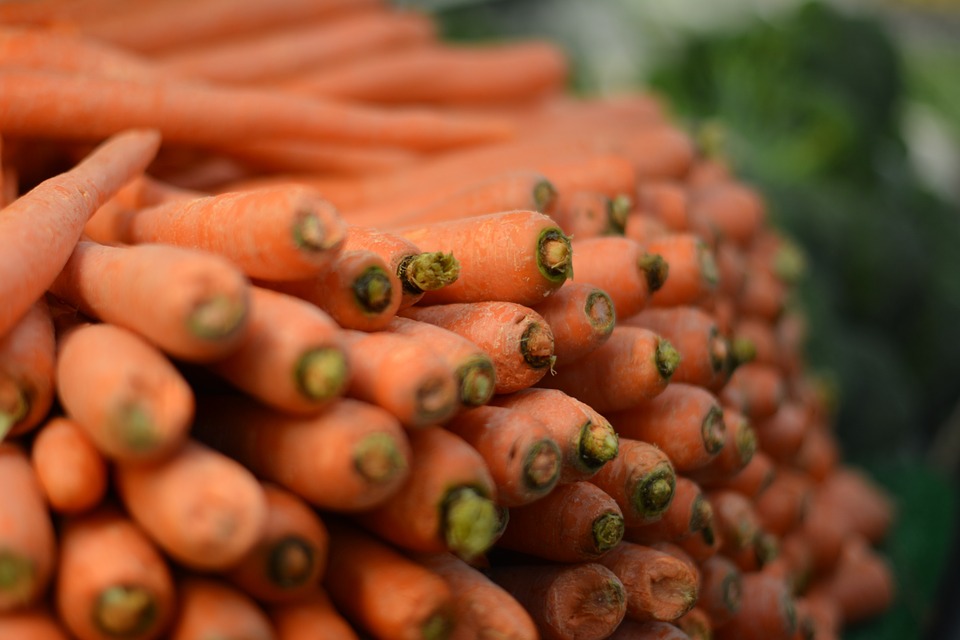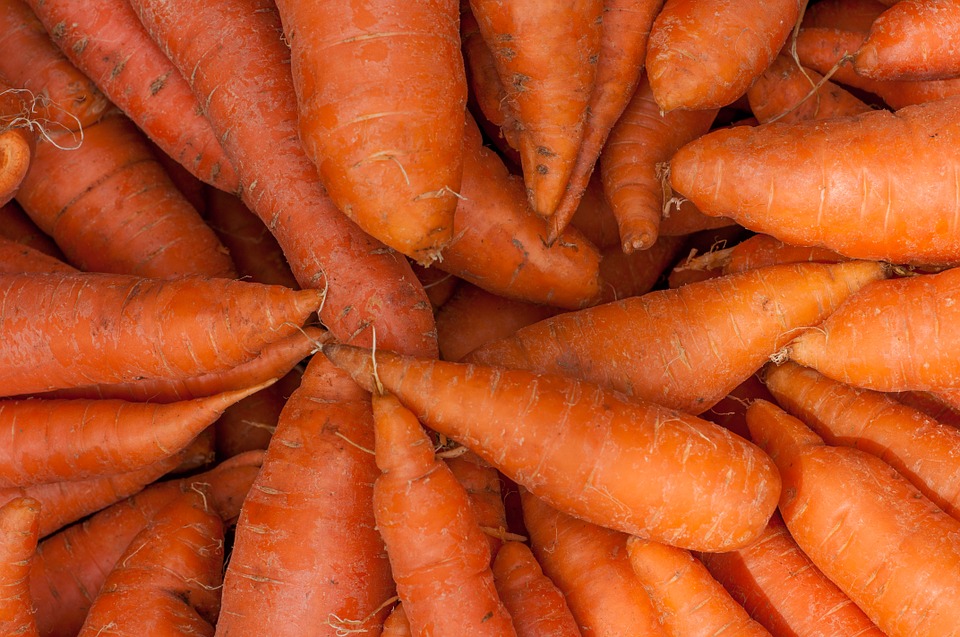The image of a rabbit happily munching on a carrot is deeply ingrained in our collective imagination, fuelled by countless cartoons and children's stories. However, the reality of carrots in a rabbit's diet is far more nuanced than this simplistic portrayal. This article will delve into the complexities surrounding carrots and rabbits, separating fact from fiction and providing a comprehensive guide for responsible pet ownership.
Part 1: Deconstructing the Carrot Myth

1.1 The Carrot as a Staple: A Misconception
While carrots are often associated with rabbits, they should not be considered a primary food source. The belief that carrots are essential for rabbits stems from popular media depictions, not scientific evidence. This misconception can lead to overfeeding, potentially harming rabbits' health.
1.2 A Look at the Rabbit's Digestive System
Understanding the rabbit's unique digestive system is crucial. Rabbits are herbivores with specialized digestive systems designed for a diet rich in fiber and low in sugar. This natural diet consists primarily of grasses and hay, providing the necessary nutrients for healthy digestion, growth, and overall well-being.
1.3 Unmasking the Truth: Carrots as Treats
Carrots should be considered supplemental treats rather than essential diet components. While they offer some nutritional benefits, they cannot replace the core foundation of a rabbit's diet: hay, grass, and a small amount of fresh greens.
Part 2: Exploring the Nutritional Profile of Carrots

2.1 Carrots: A Treasure Trove of Nutrients
Carrots are a good source of vitamins and minerals, particularly vitamin A, which promotes healthy vision, skin, and immune function. Their antioxidant content helps protect cells from damage. Additionally, carrots contain fiber, aiding digestion and promoting gut health.
2.2 The Potential Downsides: Sugar Content and More
Despite their benefits, carrots also contain a considerable amount of sugar. Overconsumption can lead to weight gain, dental issues, and digestive problems, potentially impacting a rabbit's overall health. Excessive sugar intake can also disrupt the delicate balance of gut bacteria, leading to diarrhea and other digestive disturbances.
Part 3: Feeding Carrots to Your Rabbit: A Guide to Moderation
3.1 A Balanced Approach: The Importance of Moderation
The key to safe and healthy carrot feeding lies in moderation. A couple of small slices per week is generally considered a safe amount for most rabbits. However, individual needs can vary, so monitoring your rabbit's weight and general health is essential.
3.2 Choosing the Right Carrots
Opt for fresh, organic carrots whenever possible to minimize pesticide exposure. Avoid carrots that are wilted, bruised, or display signs of mould. Freshness and quality are crucial for ensuring optimal nutritional value and minimizing the risk of digestive issues.
3.3 Safe Handling and Preparation: Minimizing Risks
Wash carrots thoroughly before feeding them to your rabbit to remove dirt and residue. Cut carrots into small, bite-sized pieces to prevent choking hazards. It's important to note that the leafy greens of carrots are toxic to rabbits and should be avoided completely.
Part 4: Beyond Carrots: A Diverse Range of Healthy Treats
4.1 Exploring Alternatives: Fresh Herbs and More
A variety of healthy and nutritious treats can supplement a rabbit's core diet. Fresh herbs like parsley, cilantro, and basil are generally safe and can be offered in moderation. A small slice of banana or apple (without the core and seeds) can also be occasional treats.
4.2 Prioritizing Hay and Grass: The Foundation of a Healthy Diet
While treats are enjoyable, it's essential to prioritize hay and grass as the foundation of a rabbit's diet. These provide essential fiber, contribute to healthy digestion, and help maintain a rabbit's optimal weight.
Part 5: Recognizing the Signs of Overfeeding Carrots
5.1 Observing the Warning Signs: Weight Gain, Digestive Issues, and More
Recognizing the signs of overfeeding carrots is vital for your rabbit's health. Weight gain is a clear indicator of excessive sugar intake. Digestive issues like diarrhea, gas, and bloating can also arise from a diet overloaded with carrots. Dental problems may occur due to the sugar content contributing to plaque and tartar build-up.
5.2 Seeking Professional Advice: Consultation with a Veterinarian
If you notice any of these signs, consult with your veterinarian immediately. They can assess your rabbit's condition, recommend appropriate treatment, and provide personalized dietary advice.
Part 6: Addressing Common Concerns: FAQs About Carrots and Rabbits
6.1 Can Baby Rabbits Eat Carrots?
Baby rabbits under 3 months old have delicate digestive systems and are particularly susceptible to digestive issues. Carrots should be avoided entirely during this period. Their diet should primarily consist of hay, pellets, and a small amount of fresh greens.
6.2 Can Rabbits Eat Carrot Tops?
Carrot tops contain a toxin that can be harmful to rabbits. Avoid feeding carrot tops to your rabbit completely.
6.3 Can Rabbits Eat Cooked Carrots?
While cooked carrots are not inherently toxic, they are less digestible for rabbits and can lose some of their nutritional value. Stick to offering fresh, raw carrots whenever possible.
6.4 How Often Can Rabbits Eat Carrots?
A couple of small slices of carrots per week is generally considered safe for most adult rabbits. However, the frequency should be adjusted based on your rabbit's individual needs, weight, and any existing health conditions.
6.5 What Happens If a Rabbit Eats Too Many Carrots?
Overeating carrots can lead to weight gain, digestive issues, and dental problems. It's crucial to monitor your rabbit's diet and seek veterinary advice if you suspect overfeeding.
6.6 Can Rabbits Eat Carrot Sticks?
Carrot sticks can be a safe treat, but they should be given in moderation. Ensure that carrot sticks are cut into small, bite-sized pieces to prevent choking hazards.
Part 7: Conclusion: A Responsible Approach to Rabbit Care
The relationship between rabbits and carrots is not as simple as it may seem. While carrots can offer some nutritional benefits, they should be treated as occasional treats, not a staple food. Prioritizing a diet rich in hay, grass, and a small amount of fresh greens is crucial for maintaining a rabbit's health and well-being. Remember, seeking professional advice from a veterinarian is essential for creating a tailored diet plan that meets your rabbit's individual needs. By understanding the nuances of rabbit nutrition, you can provide your furry friend with a happy and healthy life.
Everyone is watching
-

Do Rabbits Lay Eggs? (The Surprising Truth)
OTHER TYPES OF PETSThis article will unravel the common misconception that rabbits lay eggs, exploring the fascinating world of r...
-

Can Rabbits Eat Grapes? A Guide to Safe Rabbit Treats
OTHER TYPES OF PETSThis comprehensive guide will explore the safety and suitability of grapes for rabbits, providing detailed inf...
-

What's a Group of Rabbits Called? (A Comprehensive Guide)
OTHER TYPES OF PETSThis article delves into the fascinating world of rabbits, exploring the various terms used to describe a grou...
-

Predators That Hunt Rabbits: A Guide to Natural Enemies
OTHER TYPES OF PETSI've always been fascinated by the circle of life, that delicate dance between predator and prey. Growing up ...
-

Are Rabbits Nocturnal Animals?
OTHER TYPES OF PETSThe question of whether rabbits are nocturnal animals is a fascinating one, with a surprisingly complex answer...
